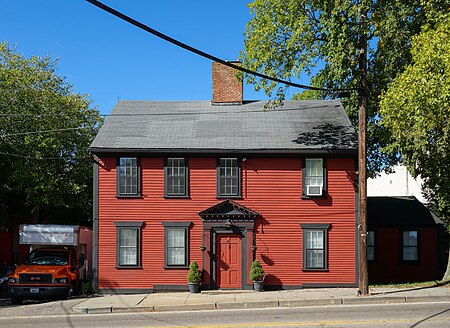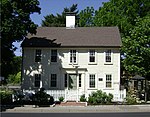Caleb Greene House
Federal architecture in Rhode IslandGreene family of Rhode IslandHouses completed in 1800Houses in Warwick, Rhode IslandHouses on the National Register of Historic Places in Rhode Island ... and 2 more
Kent County, Rhode Island Registered Historic Place stubsNational Register of Historic Places in Kent County, Rhode Island

The Caleb Greene House is an historic house in Warwick, Rhode Island. The 2+1⁄2-story wood frame Federal era house was built in 1800 by Caleb Greene, a local businessman. Caleb Greene was a cousin to the American Revolutionary War General Nathanael Greene and the father to Major General George Sears Greene, the man credited with holding the right flank of the Union Army on Culp's Hill at the Battle of Gettysburg on July 2, 1863. The house, one of the better-preserved of the period in the Apponaug area of Warwick, was listed on the National Register of Historic Places in 1978.
Excerpt from the Wikipedia article Caleb Greene House (License: CC BY-SA 3.0, Authors, Images).Caleb Greene House
Centerville Road, Warwick
Geographical coordinates (GPS) Address Nearby Places Show on map
Geographical coordinates (GPS)
| Latitude | Longitude |
|---|---|
| N 41.698611111111 ° | E -71.460833333333 ° |
Address
Centerville Road 20
02886 Warwick
Rhode Island, United States
Open on Google Maps






